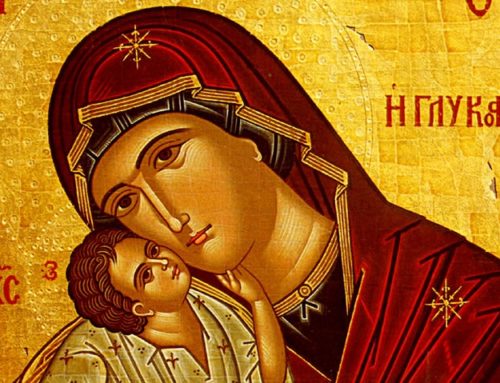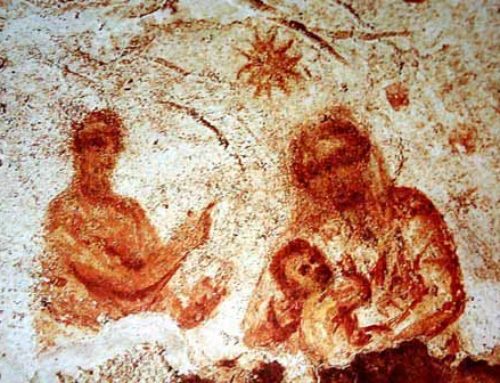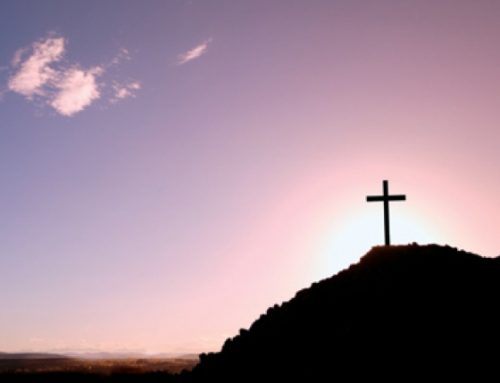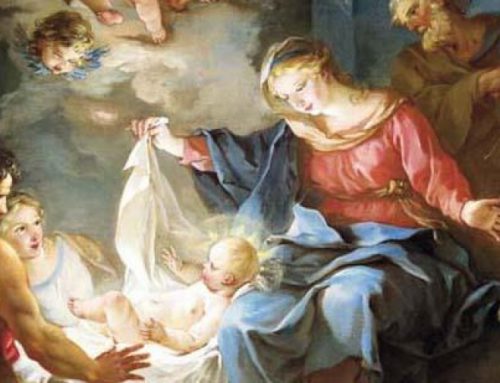Christianity is the religion founded by Jesus Christ, the Son of God become man. People became Christians – Disciples of Christ – through baptism, thereby entering the visible community of salvation which is called the Church.
1. What is meant by Christianity?
By Christianity we mean the religion founded by Jesus Christ, the Son of God become man. Jesus himself and his teachings are the bases on which the Christian religion rests. Christians look to Jesus Christas their redeemer and teacher: they recognize him as their God and Lord and they hold to his teaching.
At a precise moment in history and in a particular place on earth, the Son of God became man and made his appearance in human history. Jesus’ place of birth was Bethlehem, in Judea; he was born when Herod the Great was king of Judea andQuirinius was governor of Syria, in the reign of Caesar Augustus, emperor of Rome (cf. Mt 2:1; Lk 2:1-2). Christ lived on earth until another documented moment in time: his passion, death and resurrection took place in Jerusalem, starting on the fourteenth day of Nisan in the year 30. At that time Caiaphas held the position of high priest, the procurator Pontius Pilate ruled Judea and Tiberius was emperor of Rome.
2. Get to know Jesus Christ
Jesus put himself forward as the Christ, the messiah foretold by the prophets and eagerly expected by the people of Israel. In Caesarea Philippi, against the background of various opinions as to who he was, Jesus asked his Apostles: ‘But who do you say that I am?’ Peter replied very emphatically: ‘You are the Christ, the Son of the living God.’ Jesusaccepted this description of himself and confirmed it quite unequivocally: ‘… [for] flesh and blood has not revealed this to you, but my Father who is in heaven.’ (cf. Mt 16:13-17). On the night of his passion, before the chief priests and all the Sanhedrin, he openly declared that he was the Son of God the messiah. In response to the solemn question put to him by the chief priest, the supreme religious authority in Israel, ‘Are you the Christ, Son of the Blessed?’, Jesus said ‘I am’ (Mk 14:61-62).
‘He came to his own home, and his own people received him not’ (Jn 1:11). These words of the first chapter of St. John’s Gospel report the drama of the rejection of the Savior by the chosen people. At this time most Jews had a political-nationalistic idea of what the messiah would be like: they expected him to be a kind of earthly leader who would free their nation from the oppressive yoke of the Romans and restore the kingdom of Israel in all its splendor. Jesus did not fit this image, for his kingdom was not of this world (cf. Jn 18:36). Therefore, they failed to recognize him; instead, he was rejected by the leaders of the people and condemned to death by crucifixion.
The miracles Jesus performed during his public life were the proof he offered of his messiahship and his way of demonstrating the truth of his teachings. His miracles and teachings, combined with Jesus’ unique personality, were what caused people to become his disciples, the first of whom were the twelve Apostles. Initially, their commitment was defective: for they shared many of their contemporaries’ prejudices; they found it difficult to grasp exactly what Jesus’ redemptive mission was – which explains how terribly disconcerted they were by his passion and death.
The resurrection of Jesus is the central dogma of Christianity and is the decisive proof of the truth of his teaching. ‘If Christ has not been raised,’ St. Paul wrote, ‘then our preaching is in vain and your faith is in vain’ (1 Cor 15:14). The fact of the resurrection (nothing was further from the thoughts of the Apostles and disciples) was thrust on them by the sheer force of evidence: ‘But in fact Christ has been raised from the dead, the first fruits of those who have fallen asleep’ (1 Cor 15:20; cf. Lk 24:27-44; Jn 20:24-28).
From then on, the Apostles put themselves forward as ‘witnesses’ of the risen Jesus (cf. Acts 2:22; 3:15), reporting his resurrection to the whole world and sealing their testimony with their own blood. The disciples of Jesus Christ recognized his divinity; they believed that his death was responsible for their redemption and that they had received the fullness of revelation, transmitted to them by the Master and gathered up in the form of scripture and tradition.
3. The Birth of the Church
But Jesus Christ not only founded a religion – Christianity; he established a Church. The Church – the new people of God – was established in the form of a visible community of salvation which people join through baptism. The Church was grounded on the Apostle Peter, to whom Christ promised the primacy – ‘and on this rock I will build the Church’ (Mt 16:18); Christ confirmed this after his resurrection and conferred this responsibility on Peter: ‘Feed my lambs,’ ‘Tend my sheep’ (cf. Jn 21:15-17). The Church of Jesus Christ will last until the end of time, as long as the world lasts and there are men on earth: ‘and the gates of hell shall not prevail against it’ (Mt 16:18). The final stage in the establishment of the Church occurred on the day of Pentecost, which is when its history begins.
Source: Jose Orlandis (A Short History of the Catholic Church, 2001)







Leave A Comment
You must be logged in to post a comment.